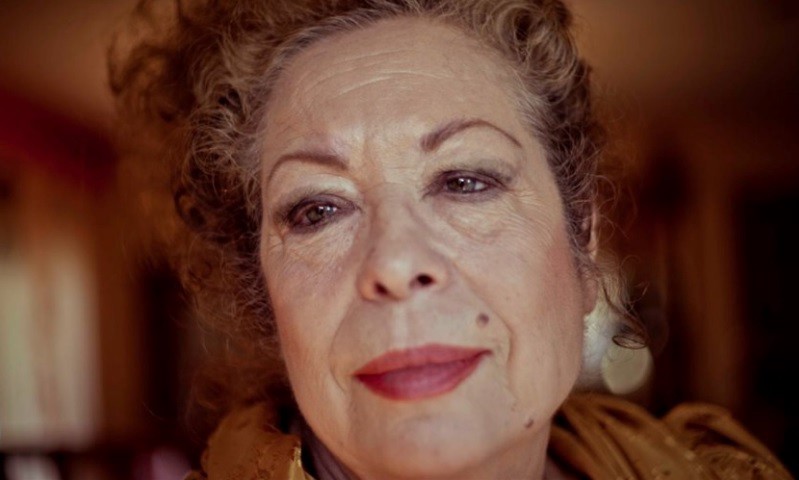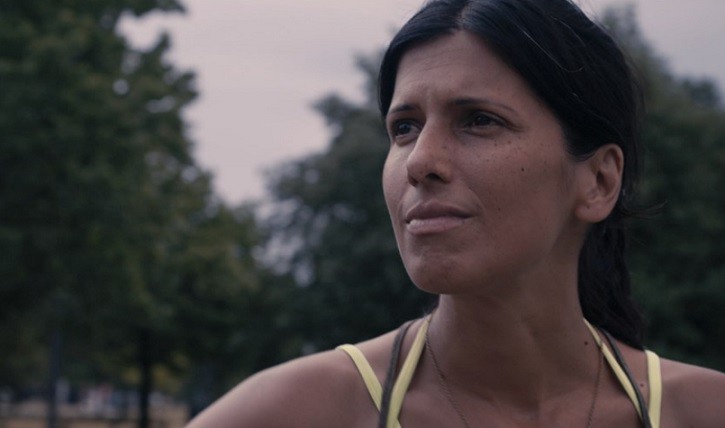
Hot Docs kicks off today. Given that the Toronto fest is among the world’s biggest documentary festivals, it’s unsurprising that this year’s expansive program has something for everyone, whether you’re interested in pressing social issues, personal tragedies, or inspiring underdog stories. We’ve assembled some of the women-directed titles we’re most looking forward to seeing, but this list is not exhaustive. For more information about some of the high-profile films helmed by women screening at the fest, check out our post about Hot Docs’ Special Presentations lineup.
The fest runs until May 7. The film synopses below are courtesy of Hot Docs.
“32 Pills: My Sister’s Suicide” — Directed by Hope Litoff
What it’s about: A talented, gorgeous and well-loved New York artist and photographer kills herself in a strikingly peculiar fashion. Years later, the director — her sister — combs through her belongings to painstakingly uncover her motives in this refreshingly witty and brave quest.
Why we’re interested: When tragedies like suicide are depicted in film, the spotlight is usually reserved for the bereaved families and friends. There’s nothing wrong with that, of course — but suicide victims are usually just portrayed as that: victims, tragic figures with no personality or backstory. Instead of just focusing on those her sister left behind, director Hope Litoff shows both sides of the story. While learning to cope with her grief and coming to terms with her Ruth’s death, Litoff also provides the audience a chance to get to know Ruth as a person in her own right.
“A Better Man” — Co-Directed by Attiya Khan
What it’s about: Attiya’s years as a counselor shape her radical approach to confronting her own decades-old past as a victim of domestic violence. Sitting across from her abuser, they together delve into their turbulent history, uncovering its root causes with compassion.
Why we’re interested: “A Better Man” deals with subject matter that’s rarely depicted in media. Fortunately, HBO’s “Big Little Lies” has helped start some important, long overdue conversations about domestic abuse, and we’re betting that “A Better Man” will offer audiences another eye-opening perspective on a crime that’s all too common. The film’s co-director, Attiya Khan, reunites with her high school boyfriend, who abused her for the two years they spent together. The two discuss what exactly happened during those formative, traumatic years — and the effect they’ve had on Khan. Based on the trailer “A Better Man,” the experience of revisiting the past seems both painful and healing for the filmmaker. We sense that her journey will be especially meaningful to those who have dealt — or are dealing — with domestic violence.
“Communion” — Directed by Anna Zamecka
What it’s about: Fourteen-year-old Ola looks after a useless father and raises her autistic brother on her own. If only she can make her sibling’s First Communion perfect, maybe their mercurial mother will come back home to them in this award-winning family tale.
Why we’re interested: “Communion” took home the Critics’ Week Grand Prize at Locarno Film Festival and was nominated for Poland’s Oscars. The coming-of-age story has great buzz. While teen girls are often represented as vacuous and superficial with no responsibilities, the fact is that many of them, like Ola, are single-handedly running households. It’s nice to see a film that reflects this reality.
“Divine Divas”— Directed by Leandra Leal
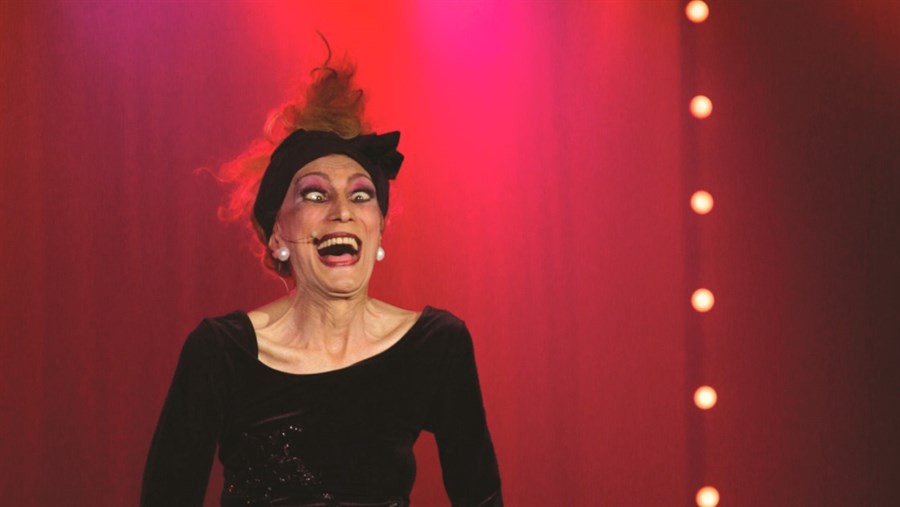
What it’s about: A famed Brazilian cabaret in the 60s showcased some of the first transvestite artists who challenged the morals of a country at the height of a rigid military dictatorship. Now, 50 years into their careers, they return to the stage.
Why we’re interested: We tend to think of political protest in terms of marches, boycotts, and canvassing. But sometimes refusing to hide who you are or what you’re passionate about are the most effective means of social change. In a time when nearly every engaged progressive is looking for any way to push back against the White House’s fascist agenda, we couldn’t be more excited to learn about a group of drag queens that took on a dictator — and won. Resistance rarely looks this fun.
“Every Other Couple” — Directed by Mia Halme
What it’s about: Reflecting on their decisions to divorce and the complicated dynamics that emerge, three ex-couples learn to accept pain and sorrow as they navigate their new realities and redefine what it means to be a family.
Why we’re interested: Stories about romantic relationships often veer into fairy tale-like territory or domestic nightmares. “Every Other Couple” seems to offer a a less melodramatic take on the dissolution of relationships than we’re accustomed to seeing — and we’re so glad for it. The divorce process is infamously emotional, complicated, and costly. But there aren’t always villains. And sometimes the couple deciding to split still love and respect one another. “Every Other Couple” sounds like an intimate look into beginnings, endings, and everything in between.
“House in the Fields” — Directed by Tala Hadid
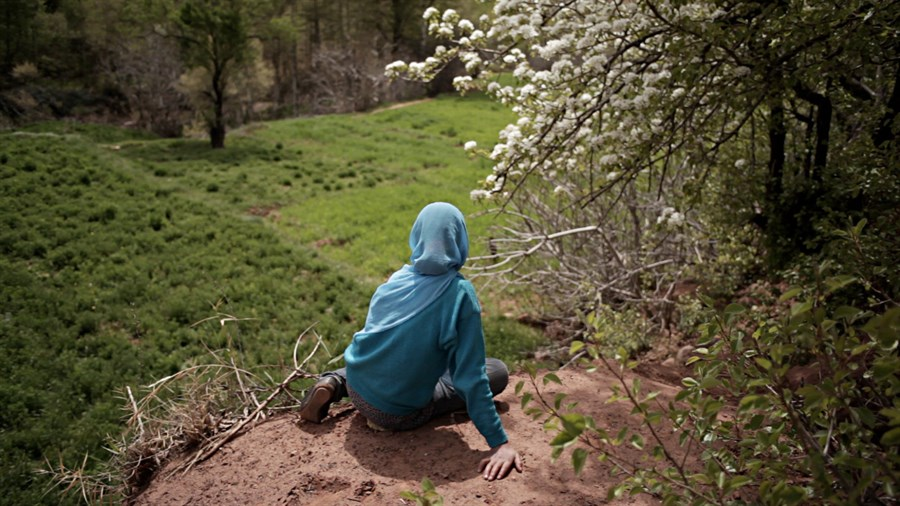
What it’s about: Deep in Morocco’s mountains, in an isolated village at the crossroads of tradition and change, two sisters come of age. Engaged to be married and preparing to move to Casablanca with her husband, Fatima must give up school while the younger Khadija dreams of one day becoming a judge.
Why we’re interested: Taking place over the course of a year, “House in the Fields” is the first installment of a trilogy about two sisters “whose aspirations seem incompatible with the daily life of their remote village,” Hot Docs writes. Films that showcase the relationship between sisters will always pique our interest, but we’re even more intrigued by the possibility of a “Boyhood”-esque series that follows Fatima and Khadija as they grow up. There will most likely be a significant shift in the sisters’ close bond once Fatima marries in “House in the Fields,” and we’re curious to see how their connection evolves throughout this film and its follow-ups.
“La Chana” —Directed by Lucija Stojevic
What it’s about: At the height of her career, a flamenco legend mysteriously disappears from the spotlight. Decades later she makes her dramatic return for a triumphant final performance, and reveals the terrible secret that’s kept her from the stage.
Why we’re interested: On some level, most women’s sense of worth is tied to their bodies: its age, appearance, or health. (That’s the patriarchy for you.) This is especially true of female dancers — who build their entire career around their body’s physical capabilities. Like “Restless Creature: Wendy Whelan,” “La Chana” depicts the physical and emotional toll the dance profession takes on women, particularly those nearing the end of their careers.
“P4W: Prison for Women”— Directed by Janis Cole and Holly Dale
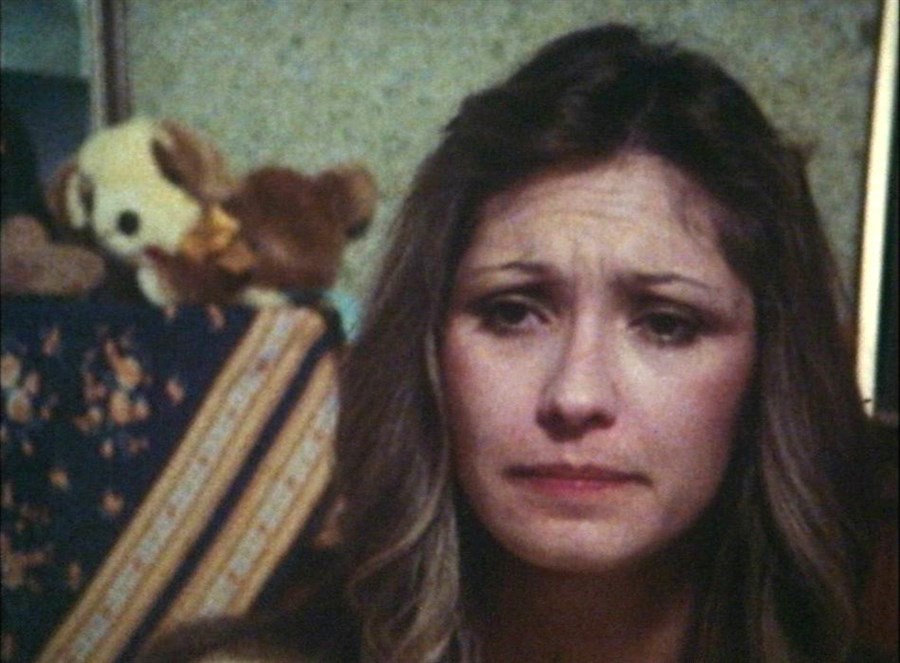
What it’s about: Canada’s iconic filmmaking duo takes us behind the walls of the women’s prison in Kingston, Ontario, turning the camera on five incarnated women who share stories and affirm the complexities of humanity with their poignant and humorous frankness.
Why we’re interested: “‘P4W’ isn’t sensationalized or rooted in an exploitative voyeurism,” Hot Docs writes. Hallelujah. Janis Cole and Holly Dale’s new doc doesn’t treat the five incarcerated women it depicts as devils incarnate or sideshow curiosities, which is often how criminals are portrayed onscreen. Most of us are watching “Orange Is the New Black” — and anticipating its upcoming fifth season — but how much do we actually know about the real women behind bars, the circumstances that led them there, and the conditions they live under? “PFW” will offer us some much-needed information and insight into these questions.
“Zaineb Hates the Snow” — Directed by Kaouther Ben Hania
What it’s about: When her mother remarries and her newly blended family moves to Canada, a nine-year-old Tunisian girl’s life takes a profound turn as she struggles to find her place and maintain her Muslim identity in a new land.
Why we’re interested: There are dozens of films that explore divorce and remarriage through a child’s eyes. However, most focus on the kid’s adaptation to a new family, not an entirely new life. Zaineb, the main character in “Zaineb Hates the Snow,” tries to keep her sense of self when she is forced to give up her previous family dynamic, her school, her friends, and her homeland when her mother remarries. Director Kaouther Ben Hania provides a new take on the immigrant story in “Zaineb Hates the Snow.” For Zaineb, getting to Canada was the easy part. Learning to live with a new family in a new country is the challenge — and the one we’re looking forward to watching.
